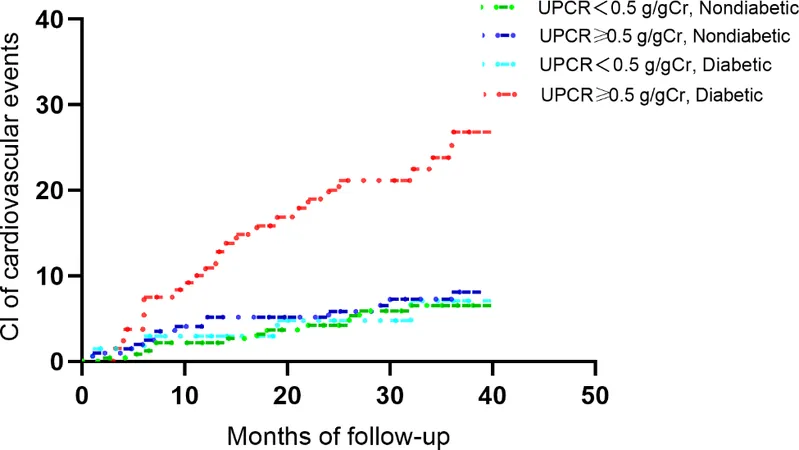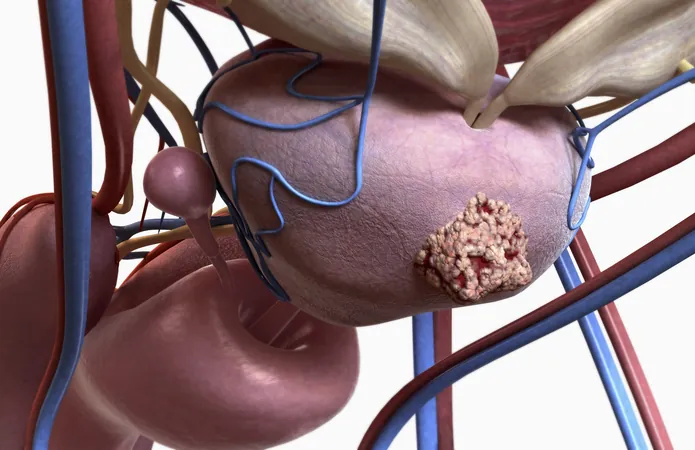
Surprising Links Between Proteinuria, Diabetes, and Cardiovascular Risk Revealed in Groundbreaking CKD Study
2024-11-18
Author: Wei
Introduction
A pivotal new study has uncovered alarming interactions between proteinuria and diabetes that significantly elevate the risk of cardiovascular events among individuals with chronic kidney disease (CKD). Conducted as part of the CKD-ROUTE initiative in Japan, this research provides vital insights that could transform preventative strategies and treatment protocols for at-risk populations.
Study Overview
The study focused on 639 participants diagnosed with CKD stages 2 to 5, who were enrolled between 2010 and 2011. The researchers used sophisticated Cox proportional hazards models to evaluate how urinary protein-to-creatinine ratios (UPCR) and diabetes together influenced cardiovascular events over a median follow-up period of three years.
Key Findings
Out of the participants, 59 experienced cardiovascular events during the follow-up. The findings were striking: those with proteinuria had a 2.16 times higher risk of cardiovascular events, while those with diabetes faced an even greater risk, with a hazard ratio of 2.53. Notably, the interaction between proteinuria and diabetes amplified this risk dramatically, resulting in a staggering 4.09 times greater likelihood of cardiovascular events in individuals with both conditions.
Why This Matters
These results highlight the urgent need for enhanced monitoring and intervention for patients suffering from both proteinuria and diabetes. Cardiovascular disease (CVD) is already recognized as the leading cause of mortality globally, and diabetes is a principal risk factor, exacerbating cardiovascular threats in CKD populations. The research illustrates that despite controlling for traditional CVD risk factors such as smoking and hypertension, those with proteinuria and diabetes still remain vulnerable due to the compounded risks these conditions present together. Previous studies have suggested proteinuria might intensify cardiovascular complications, indicating a critical gap in managing patients with both CKD and diabetes.
Further Exploration Needed
While the study's design was robust, limitations exist—primarily its population focus on Japan, which may limit the generalizability to other ethnic groups worldwide. Furthermore, the neurological mechanisms linking proteinuria, diabetes, and cardiovascular risk need deeper exploration to formulate comprehensive treatment approaches.
Conclusion
This groundbreaking study paves the way for future research into synergistic effects of chronic conditions on cardiovascular health. With proteinuria and diabetes as dual threats, medical professionals must prioritize screening and heightened vigilance in managing these interlinked conditions to mitigate staggering cardiovascular risk—ultimately improving outcomes and quality of life for millions living with CKD.
Stay Informed
As further studies emerge, ongoing discussions regarding the significance of patient education, lifestyle modifications, and new therapeutic interventions will remain at the forefront of cardiovascular health strategies. Stay tuned as we continue to uncover essential insights and breakthroughs in chronic disease management!




 Brasil (PT)
Brasil (PT)
 Canada (EN)
Canada (EN)
 Chile (ES)
Chile (ES)
 España (ES)
España (ES)
 France (FR)
France (FR)
 Hong Kong (EN)
Hong Kong (EN)
 Italia (IT)
Italia (IT)
 日本 (JA)
日本 (JA)
 Magyarország (HU)
Magyarország (HU)
 Norge (NO)
Norge (NO)
 Polska (PL)
Polska (PL)
 Schweiz (DE)
Schweiz (DE)
 Singapore (EN)
Singapore (EN)
 Sverige (SV)
Sverige (SV)
 Suomi (FI)
Suomi (FI)
 Türkiye (TR)
Türkiye (TR)